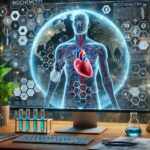A Complete Guide to Molecular Science
Introduction
Biochemistry researchers play a critical role in bridging the fields of biology and chemistry to study the molecular foundations of life. Their discoveries enable groundbreaking innovations in medicine, biotechnology, agriculture, and environmental sciences. Through their work, biochemistry researchers seek to answer key questions about how living systems operate, paving the way for advancements that improve human health and our understanding of the natural world.
Responsibilities of a Biochemistry Researcher
Biochemistry researchers take on diverse roles and responsibilities that require precision, innovation, and collaboration. Here are the main duties they perform:
- Designing and conducting experiments to explore molecular processes.
- Analyzing data using statistical tools and computational models.
- Collaborating with multidisciplinary teams to drive research projects forward.
- Publishing findings in peer-reviewed journals and presenting at conferences.
- Developing new techniques for studying biomolecules.
Key Areas of Research
1. Enzyme Biochemistry
Researchers study enzymes, the proteins that catalyze biochemical reactions, to understand their role in metabolism and develop enzyme-based therapies or industrial applications.
2. Genomics and Proteomics
By decoding the genome and studying proteins, researchers gain insights into how genes and proteins interact to influence health, disease, and biological processes.
3. Structural Biology
Determining the 3D structures of molecules like DNA, RNA, and proteins helps researchers design drugs that target specific molecular pathways.
4. Metabolism and Metabolomics
This area focuses on metabolic pathways and the small molecules involved, providing valuable information on diseases such as diabetes and cancer.
Skills Required
To excel as a biochemistry researcher, individuals need a combination of technical expertise, creativity, and soft skills. Key skills include:
- Strong analytical and problem-solving abilities to interpret complex data.
- Proficiency in laboratory techniques such as chromatography, electrophoresis, and spectrometry.
- Effective communication for writing research papers and delivering presentations.
- Attention to detail to ensure accurate and reproducible experimental results.
Career Opportunities
Biochemistry researchers have access to a wide range of career opportunities in academia, industry, and government. Popular career paths include:
- Biotechnology Researcher: Develop vaccines, therapeutic agents, and diagnostic tools.
- Clinical Biochemist: Apply biochemical knowledge in diagnosing and monitoring diseases.
- Regulatory Affairs Specialist: Ensure compliance of biochemical products with regulations.
- Patent Examiner: Evaluate and approve patents for biochemical innovations.
Frequently Asked Questions (FAQs)
1. What does a biochemistry researcher do?
A biochemistry researcher studies molecular mechanisms in living organisms, contributing to advancements in medicine, agriculture, and biotechnology.
2. What are the main skills required for a biochemistry researcher?
Key skills include analytical thinking, laboratory proficiency, effective communication, and problem-solving abilities.
3. What industries hire biochemistry researchers?
Industries like pharmaceuticals, biotechnology, healthcare, and academia actively hire biochemistry researchers.
4. How does structural biology aid in drug discovery?
Structural biology reveals the 3D structures of biomolecules, helping researchers design drugs that specifically target disease-related molecules.
5. Can biochemistry researchers work in environmental science?
Yes, biochemistry researchers often contribute to understanding environmental processes, pollution mitigation, and sustainable development solutions.



